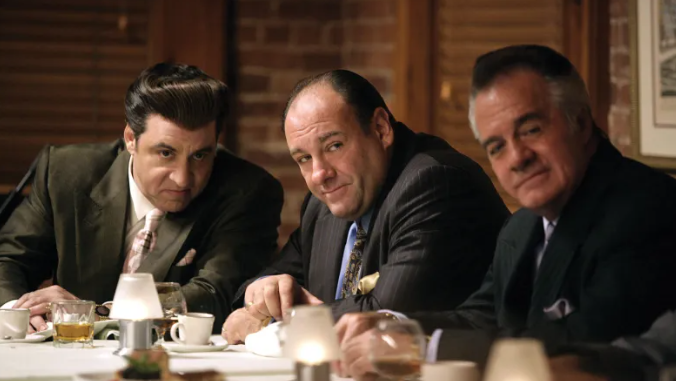
When we think of iconic characters in television history, Tony Soprano stands out as a complex figure who intricately weaves the worlds of crime, family, and mental health. As the protagonist of The Sopranos, Tony’s journey delves deep into the psyche of a mob boss grappling with the pressures of his dual life. This article uncovers the secrets behind the curtain, exploring the nuances of Tony’s character, his struggles, and the legacy he leaves behind.
Who Is Tony Soprano?
A Mob Boss with Depth
Tony Soprano isn’t just your typical mobster. He’s a multi-dimensional character navigating the treacherous waters of organized crime while juggling the challenges of family life. Created by David Chase, Tony is portrayed by the late James Gandolfini, whose performance brought the character to life in ways that resonated with viewers across the globe.
The Genesis of a Complex Character
Tony’s complexity arises from his contradictory nature. He’s ruthless yet vulnerable, powerful yet insecure. This duality is the essence of what makes him such a captivating character. As a mob boss, he exhibits traditional masculinity, but beneath that tough exterior lies a man who is deeply troubled and struggling with anxiety and depression.
The Struggle with Mental Health
Therapy Sessions: A Unique Twist
One of the most groundbreaking aspects of The Sopranos is Tony’s experience with therapy. The show’s portrayal of his sessions with Dr. Melfi, played by Lorraine Bracco, breaks the stereotype of the stoic mobster. Here, we see Tony confront his demons, revealing a side of him that is often hidden from the world.
Breaking the Stigma
Tony’s willingness to seek help is a pivotal moment in the series. It challenges the stigma surrounding mental health, especially among men in traditional roles. By presenting therapy as a tool for coping, the show sends a powerful message about vulnerability and the importance of addressing one’s mental health.
Family Dynamics
Family First: The Core of Tony’s Life
At the heart of Tony Soprano’s journey is his family. Whether it’s his wife Carmela, his children Meadow and A.J., or his mother Livia, family relationships shape his decisions and actions throughout the series.
The Strain of Dual Loyalties
Tony’s loyalty to his family often conflicts with his responsibilities as a mob boss. The show vividly illustrates this tension, as Tony grapples with his desire to be a good father and husband while maintaining his position within the criminal underworld. His family’s safety and well-being are constantly at risk due to his lifestyle, adding layers to his character’s motivation and moral dilemmas.
The Mafia World: A Dangerous Playground
Navigating the Criminal Underworld
Tony’s journey cannot be fully understood without considering the perilous environment in which he operates. The mafia world is portrayed as a dangerous playground filled with betrayal, violence, and power struggles. Tony’s rise to power is not just about ambition; it involves strategic thinking, alliances, and sometimes, ruthless decision-making.
Power Dynamics: Friends or Foes?
Tony’s relationships with other mobsters are complex. While he has allies, there are also constant threats from rival gangs and within his own crew. Characters like Christopher Moltisanti and Paulie Walnuts illustrate the fine line between friendship and rivalry, as loyalty can quickly turn into betrayal.
Symbolism and Themes
The American Dream?
The journey of Tony Soprano is often seen as a dark reflection of the American Dream. He embodies the pursuit of wealth and power but at a significant moral cost. The show prompts viewers to question the price of success and what it truly means to “have it all.”
Identity and Masculinity
Tony’s struggles with identity and masculinity are central themes throughout the series. He grapples with societal expectations of what it means to be a man, often feeling trapped between traditional values and his emotional vulnerabilities. This exploration invites viewers to reflect on their perceptions of masculinity and the pressures that come with it.
Tony’s Legacy
A Cultural Phenomenon
Tony Soprano’s impact on television and popular culture is undeniable. The character has become an emblem of complexity and depth in storytelling, influencing countless shows and characters that followed.
The Enduring Questions
Even years after the series finale, questions about Tony’s fate and the implications of his choices linger. The ambiguous ending leaves viewers contemplating his legacy, morality, and the cyclical nature of violence and power.
What Can We Learn from Tony Soprano?
Embracing Vulnerability
Tony’s journey teaches us that vulnerability is not a weakness but a strength. By seeking help and facing his mental health challenges, he opens the door for discussions about emotional well-being that are often overlooked.
The Importance of Family and Relationships
The importance of family and strong relationships resonates throughout Tony’s story. It reminds us that no matter our struggles, the connections we cultivate can provide support and grounding in difficult times.
Conclusion
Tony Soprano’s journey is a captivating exploration of the complexities of human nature, the struggles with mental health, and the balance between family and ambition. Through the lens of his character, The Sopranos dives deep into the themes of vulnerability, loyalty, and the harsh realities of life in the mafia. As we unravel the secrets behind the curtain, we realize that beneath the facade of the mob boss lies a deeply flawed but relatable human being—a reminder that our struggles do not define us, but how we confront them does.